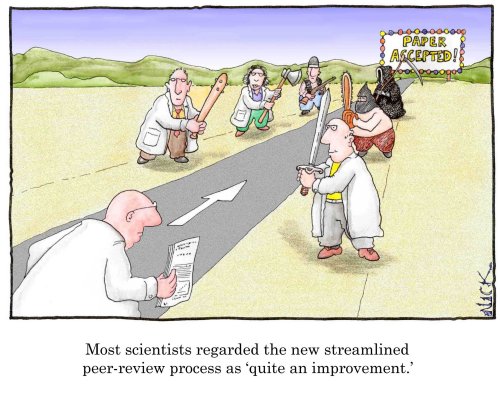I have had some discussions with colleagues recently to ascertain how many paper reviews you should accept each year. The figures vary widely - from none, to 1 or 2, to 15-20. I reviewed 10 papers last year, not including the second round reviews. Reviewing is another, 'requirement' when working in academia despite the fact that you get no financial reward (it is voluntary), kudos (you are an anonymous reviewer) or time allowance for (it all has to be done outside of your working hours). Of course you don't have to agree to do it, but people will do the same for your papers and it is unfair not to. However I only had 3 papers published last year and I reviewed 10, so I am in the red quite substantially!
An interesting development is Publons, which is a website that allows you to,
"Record, verify, and showcase your peer review contributions in a format you can include in job and funding applications (without breaking reviewer anonymity)."
I have received emails from journal publishers after a review offering this - but would anyone take it seriously? It certainly would be useful to get any professional reward (kudos again!) for the time we spend on reviews.
I reviewed a paper just before Christmas and despite the goodwill of the season (it was Christmas eve) I had to recommend rejection. The work was poorly justified, the assumptions could not realistically be made and the accuracy testing was almost non-existent. I gave a detailed 1 or 2 page summary listing the problems point by point which I can happily stand over. The other three reviewers recommended, 'minor revisions' or, 'accept as is' and gave a few lines of edit. Call me Scrooge I suppose. Amazed by this I started reading around and a good article I found on "peer review being a crapshoot?" by Elsevier is here. It also deals with foreign authors (mainly Chinese) and one interesting finding was this,
"In their cover letter, authors from China sometimes request reviewers from China, presumably hoping that Chinese reviewers will provide more favourable or sympathetic reviews than will reviewers from outside of China. In fact, we found the opposite, with reviewers from China judging papers from China more harshly (43% recommending rejection) than did reviewers from other countries (with only 15 % of the reviewer from the UK recommending rejection)."
And I also found this great picture online, which I think sums the whole process up nicely. I must have been the guy at the back in the black cape. It will be interesting to see how the editors decide finally - I rejected it in the second round too as they made none of the edits I suggested.




